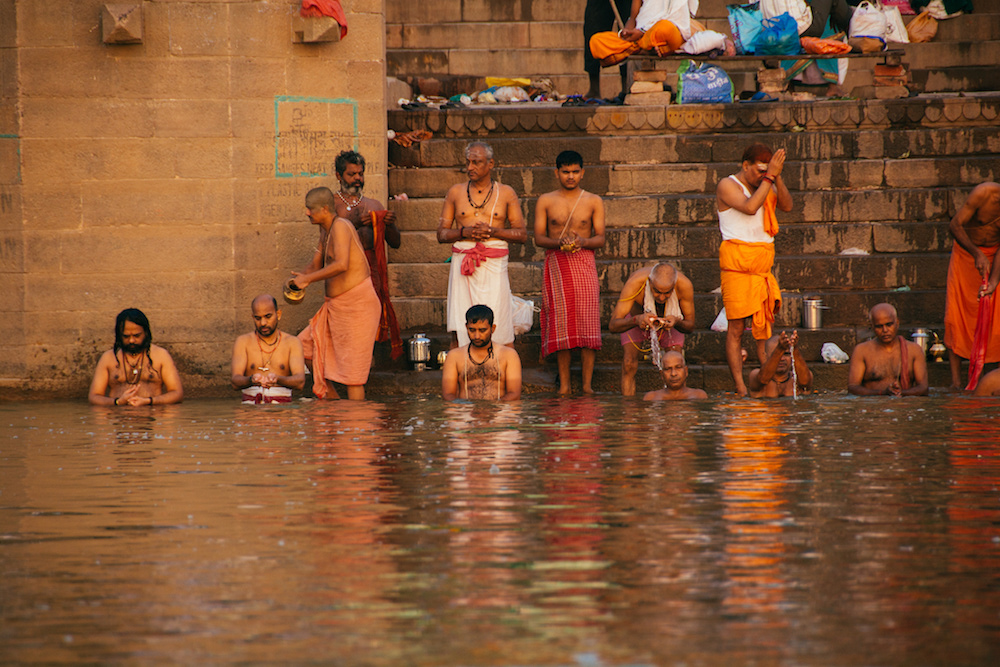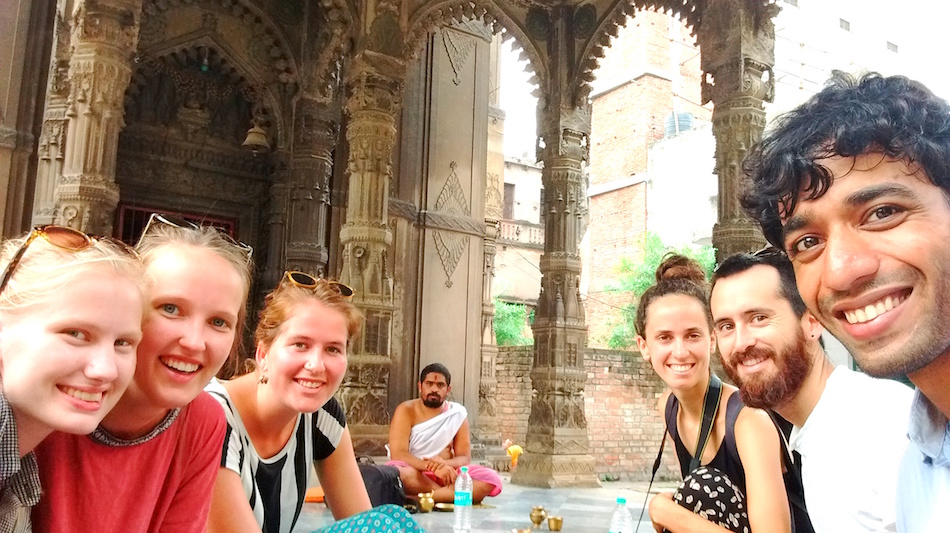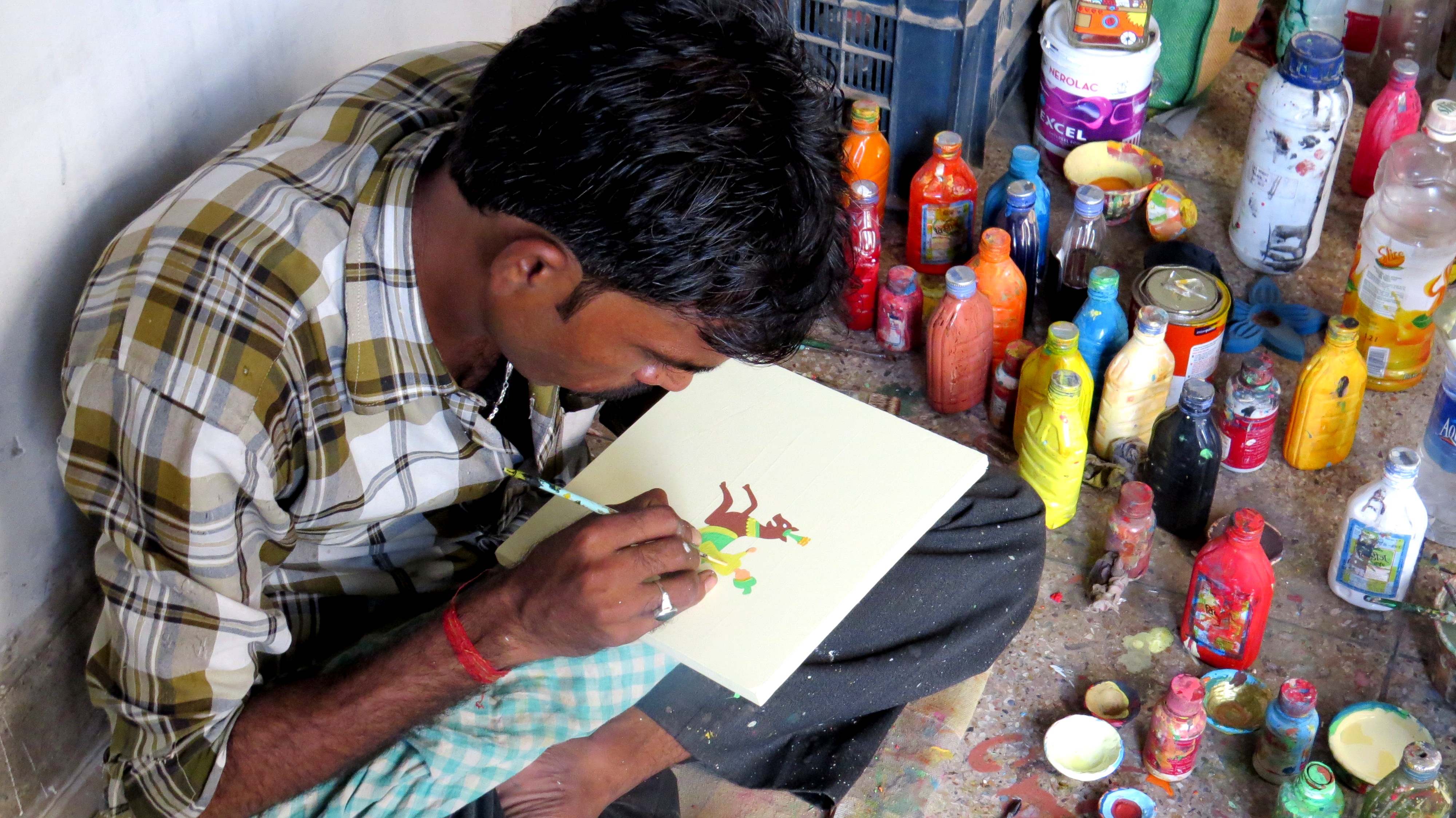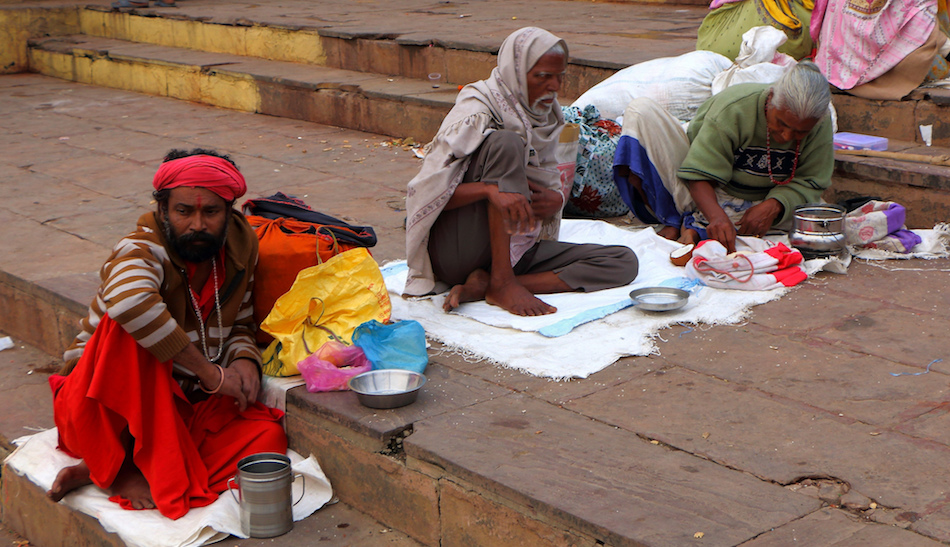
The Ganges as it runs through Varanasi. The river is worshipped as the goddess Ganga in Hinduism. Photo credit: Nhi Dang.
When Neeraj Ghaywan decided to portray Varanasi in his debut film Masaan, he chose to go beyond the usual clichéd scenes showing the Ganga ghats (the steps that take devotees down to the banks of the Ganges), temples, rickshaw pullers maneuvering through narrow bylanes of the city. Instead, he portrayed the new face of Varanasi that is getting empowered by technology. Startups are a big part of this change.
Pradeep Srivastava, professor and coordinator at IIT-BHU’s technology business incubator, has seen the transformation firsthand in India’s spiritual city.
“The incubation centre was established in 2009 after lot of protest from Banaras Hindu University faculty members. BHU, being a traditional university, did not wish to mix entrepreneurship with academics,” he says. “Once it was established, there was little activity till the institute got upgraded to IIT in 2012.”
Due to that raised status, the institute’s incubator – the Malaviya Centre for Innovation, Incubation and Entrepreneurship (MCIIE) – has been receiving a lot of funds from India’s Department of Science and Technology. MCIIE has incubated around 30 startups.
“The number looks small but it is a huge achievement for us considering the fact that a city like Varanasi received little attention till two years ago,” adds Pradeep.
Every concept is a new concept
When Aayush Rathi, an IIT Bombay and IIM-A alumni, decided on Varanasi as the base for his startup, it did raise quite a few eyebrows.
The cost of doing business in Varanasi is far less than what it would be in India’s larger cities.
Nevertheless Aayush was determined to start his company from the holy city. Roobaroo Walks connects users with people who give guided tours.
“The city is the perfect fit for the kind of work we’re trying to do. The range of different aspects of Indian culture and history that can be experienced in Varanasi is tremendous – not for nothing is it called a microcosm of India!” says Aayush. Though he considered Mumbai and Delhi “given the bigger size of the industry there and a more developed startup ecosystem”, he ended up zeroing in on Varanasi.

Aayush Rathi’s startup connects travelers with people who give guided tours. The service is starting off by focusing on Varanasi itself before expanding. Photo credit: Roobaroo.
“Our focus was more on content than volume. Varanasi is the perfect pilot city for us to polish our offerings”. The fact that the city is not as well documented as Rajasthan or Agra also made Aayush more determined to set up his tech business there.
Like Aayush, Shikha Shah found her inspiration to start her tech venture in Varanasi.
She felt the city’s weavers and woodworkers are a perfect match for her startup, Scrapshala, which turns unwanted stuff into new products – or upcycling, as it’s become known.
The non-biodegradable materials upcycled by the craftspeople for Scapshala are plastic, paper, styrofoam, metal, glass, cardboard, and e-waste. “Each product we create has a beautiful story woven around its creation. Our artisans come from underprivileged backgrounds and consist of men and women who had traditional skills such as painting, tailoring, and carpentry but due to unfortunate circumstances were not able to make a respectable living,” says Shikha.

An artisan working on items for Scrapshala.
Varanasi, believes the entrepreneur, has many problems in areas like traffic and hygiene. Hence it offers startups opportunities to do new things. “The market is new and has not been explored before. Hence, every concept in the city is a new concept.”
Varanasi talent hunt
Though Scrapshala is present in all major ecommerce portals in India, the majority of its sales come from locals. “Our offline sales are huge. For the youth in Varanasi, it has become a cool statement today and many opt for upcycled products over fresh ones. The other major buyers for us are the hotels, cafes, and restaurants,” adds Shikha.

The steps to the River Ganges. Photo credit: Juan Antonio F. Segal.
For Niraj Srivastava, CEO of jobs portal YoungSkilledIndia, Varanasi and nearby areas are where his customers are from. “Not many people in Varanasi have exposure to LinkedIn. Furthermore, LinkedIn is not really meant for students who are looking for an internship or their first break,” says Niraj, who is an IIM Calcutta alumni.
Niraj decided to take assistance from IIT-BHU to get the startup off the ground. “I have many interns who help in my operations. The talent availability in Varanasi is not an issue thanks to IIT-BHU where students – especially from Bihar, Jharkhand, and Madhya Pradesh – come in huge numbers,” says the founder. Eastern India (Bihar, Jharkhand) is often considered a good hub for researchers and engineers.
Moreover, the cost of doing business in Varanasi is far less than what it would be in India’s larger cities, say some of the new wave of entrepreneurs in the area.
“Varanasi in general is very cheap compared to metros. Since startups, especially in their early days, work on a shoestring budget Varanasi can be the perfect platform for them. We have been lucky to get hold of good manpower in the city,” says Tanmay Pandya, co-founder and director at Bridge Dots, a technology solutions provider for the chemicals industry.
Funds still a problem
Though MCIIE has been in place since 2009, it has been only two years since the startup culture in Varanasi has gathered pace. Despite the fact that founders of companies like Boring Brands, Thrillophillia, Edureka are IIT-BHU alumni, none actually looked at Varanasi to start their company.

Varanasi streets see a lot of beggars as it is a holy city for Hindus who visit for pilgrimage. Photo credit: Juan Antonio F. Segal.
“It is not surprising. Only post becoming the PM’s constituency did it start getting some importance. Many young people are now coming back to Varanasi as they see a career opportunity in the city,” says Shikha.
VCs are now taking time to hear us out.
Pradeep echoes Shikha’s views. “Though none of the startups so far have received any sort of VC funding, there is some hope. Of late the VCs are at least taking time to hear us out. Some of the VCs are in touch with startups and monitoring their progress,” he explains.
The city has other problems too. For instance, scaling is still a challenge.
“Though I have started out in Varanasi, I do not see myself here in the next four-five years. Beyond a certain level there is little possibility of growth,” says Osho Sidhant, co-founder and CEO at Craft Emporio, an online marketplace for handicrafts which are sourced from the artisans of Varanasi and other parts of the country. Though the city is a great place for sourcing products, selling can be a challenge, adds Osho. “For selling online it is just like any tier-3 city in India where the shopping behaviour has not changed and ecommerce is more about buying mobile phones.” And it’s mainly only millennials who shop online.
Moreover there is a dearth of local companies providing support services – like design and marketing – for startups. That’s a problem for any city, before the startup community reaches a threshold level. “But given the great university ecosystem existing in the city, some focused efforts to encourage graduates to form such companies can help accelerate the process,” says Aayush.
Despite the challenges, some of the founders are keen on keeping the city as the heart of their business. “I understand that in order to grow I might have to relocate to one of the metros. However, I will continue to keep Varanasi as my production base since labour here is talented as well as cheap,” says Shikha.
This post Startups pray for success in India’s spiritual city appeared first on Tech in Asia.
from Tech in Asia https://www.techinasia.com/varanasi-startups
via IFTTT
No comments:
Post a Comment